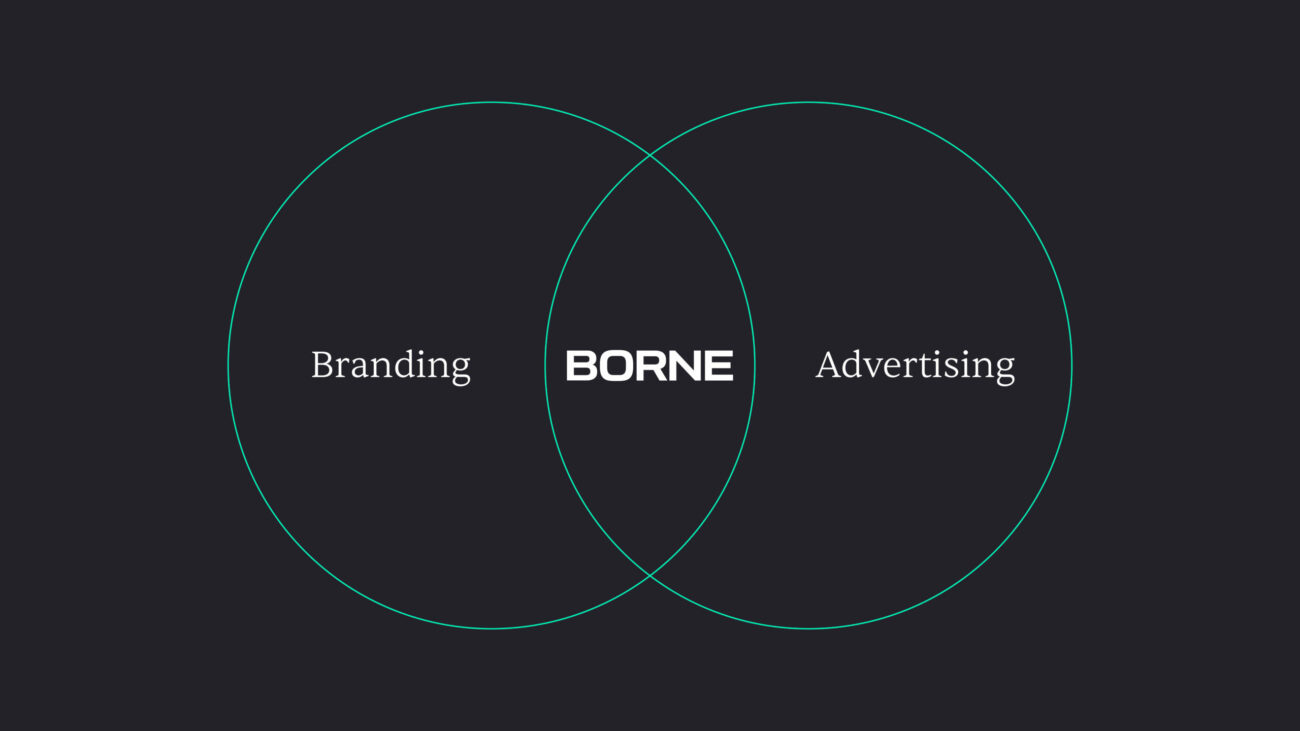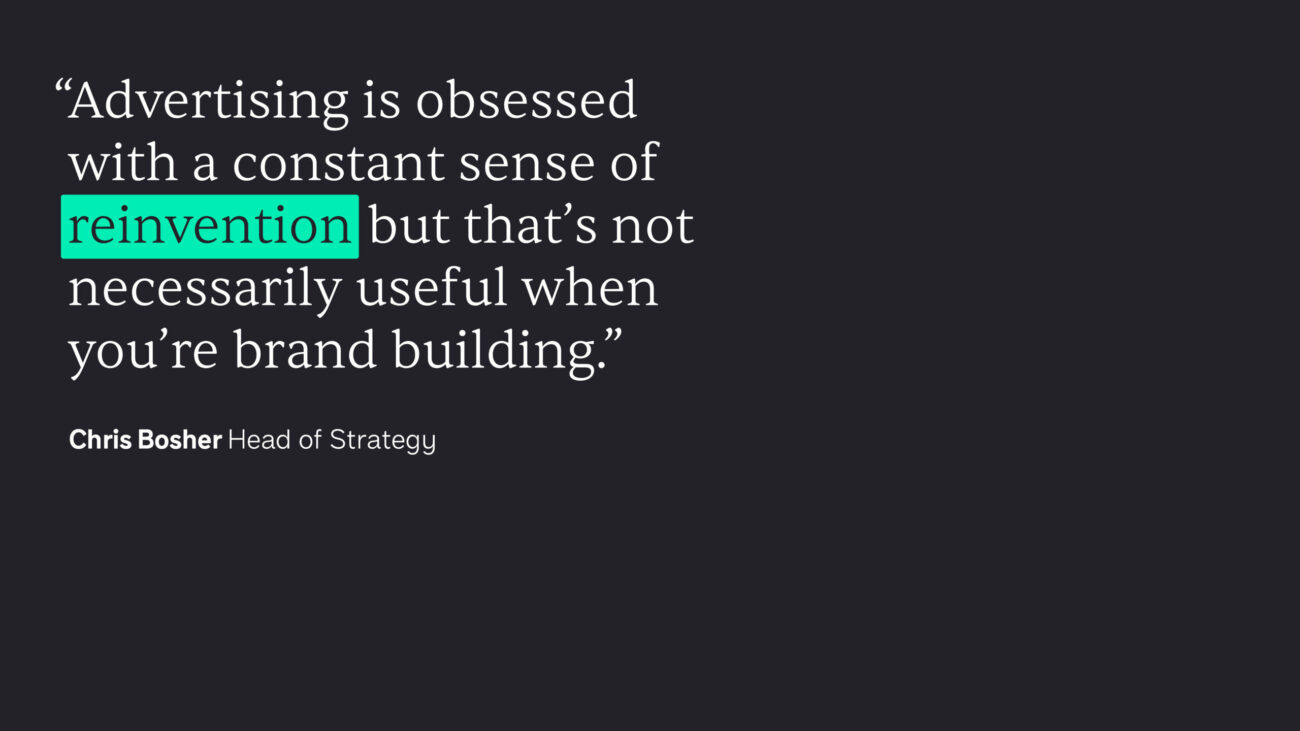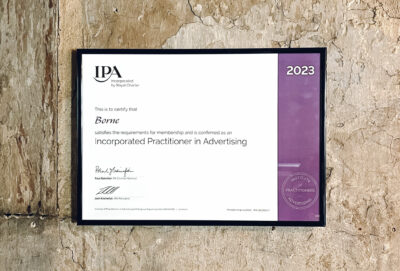The world of marketing and advertising is no stranger to buzzwords. And one that’s had a lot of attention over the years is the ‘hybrid agency’.
The idea is that, rather than getting different firms, you have one that’s your branding and advertising agency, for example.
It sounds great, in theory – and with enormous potential benefit to clients. “Most businesses can’t afford to invest in a top-flight brand consultancy and a top-flight advertising agency,” explains Chris Bosher, Borne’s Head of Strategy. “But they can afford to invest in a top-flight partner that delivers both.”
So why is this not the common-place practice? And why, if branding and advertising should complement and enhance each other, do they often seem to work at cross-purposes?
“In truth, few agencies have really cracked how to blend those two disciplines,” he explains. “Despite the fact that they are, and should be, part and parcel of the same investment.”





